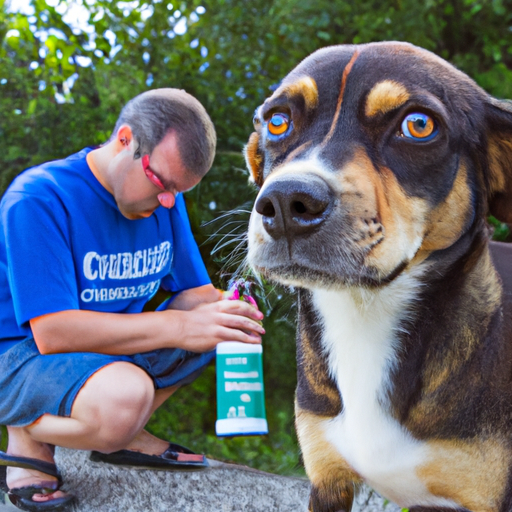Understanding the Danger
First, let’s familiarize you with the gravity of the situation. Antifreeze is a common household product, often used in automobile maintenance. While it seems harmless to us humans, it poses a serious threat to our four-legged friends. You may wonder, “Why is it so dangerous?” The answer lies in its primary ingredient: ethylene glycol. This substance is extremely toxic to dogs. Even a small amount can lead to fatal consequences.
The Effects of Antifreeze on Dogs
Now, you need to know what exactly happens when a dog ingests antifreeze. The ethylene glycol in antifreeze is rapidly absorbed into the system, affecting the brain, liver, and kidneys. Here’s how it works:
- Phase One: Within 30 minutes to 12 hours of consumption, your dog may exhibit signs such as staggering, vomiting, excessive thirst or urination, and seizures. This is due to the ethylene glycol affecting the brain and central nervous system.
- Phase Two: After 12 to 24 hours, these initial symptoms may seem to improve. But this doesn’t mean your dog is out of danger. This phase is characterized by rapid heart rate, difficulty breathing, and dehydration.
- Phase Three: This is the most critical stage, occurring 36 to 72 hours after ingestion. The ethylene glycol starts to affect the kidneys, leading to kidney failure if not treated immediately.
| Phase | Time Frame | Symptoms |
|---|---|---|
| One | 30 mins – 12 hrs | Staggering, vomiting, thirst, seizures |
| Two | 12 – 24 hrs | Rapid heart rate, difficulty breathing, dehydration |
| Three | 36 – 72 hrs | Kidney failure |
Preventing Antifreeze Poisoning
Prevention is always better than cure. So how can you prevent your dog from coming into contact with antifreeze? Here are some tips:
- Keep antifreeze containers tightly sealed and out of reach.
- Clean up any spills immediately.
- Consider switching to a pet-friendly antifreeze.
What to Do If Your Dog Ingests Antifreeze
If you suspect your dog has ingested antifreeze, immediate action is crucial. Here’s what you should do:
- Don’t panic. Keep calm and act quickly.
- Don’t induce vomiting unless instructed to do so by a vet.
- Take your dog to the vet immediately.
FAQ
Q: Can a small amount of antifreeze kill a dog?
A: Yes, even a small amount of antifreeze is extremely toxic to dogs.
Q: How long does it take for antifreeze to affect a dog?
A: Symptoms can appear within 30 minutes to 12 hours after ingestion.
Q: Is there an antidote for antifreeze poisoning in dogs?
A: Yes, there is an antidote, but it’s most effective when administered early.
Q: Can a dog survive antifreeze poisoning?
A: Yes, with immediate and aggressive treatment, a dog can survive antifreeze poisoning.
Remember, as a caregiver to your furry friend, your vigilance can save their life. Stay informed and keep them safe.



